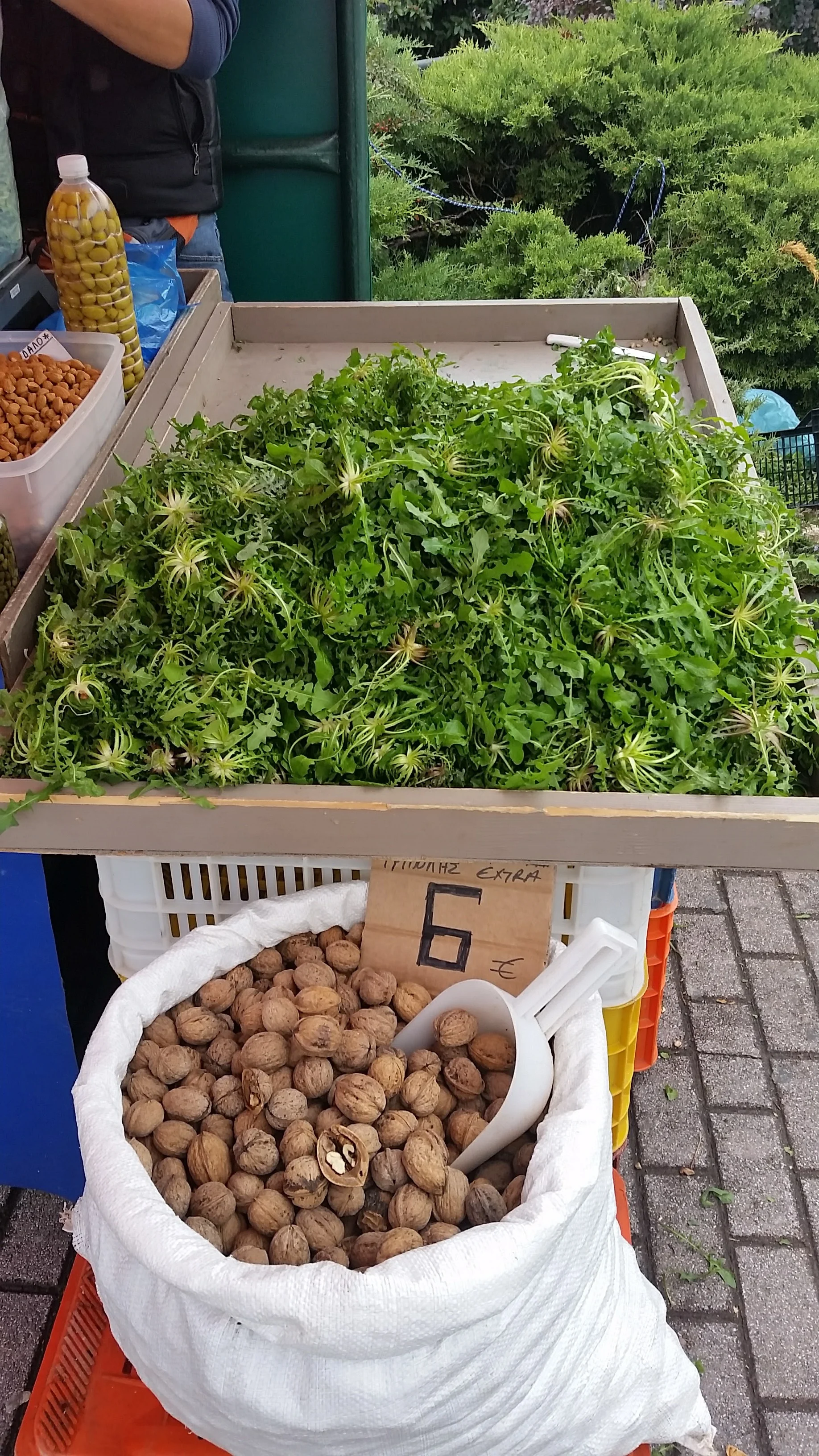STRIKE UP A CONVO WITH YOUR GENES, THE MEDITERRANEAN WAY
/Wild greens and walnuts sold at a roadside in the Peloponnese, Greece
In my last blog post, I talked about the wild herbs and plants that frequently adorn the plates of the Mediterranean Region. Growing food in the backyard and scouring the mountainsides and fields for fauna and flora has always been part of the Mediterranean plate, regardless of the country or region. Added raw to salads, simply sautéed and finished with a touch of fresh herbs or steeped in teas, often referred to as “mountain teas,” these freebies of nature are a staple. And, as you now know, it turns out that these native plants which might easily be overlooked on a stroll, contain powerful information for your genes.
But most of us are not going to suddenly take up foraging or wildcrafting. Neither are we going to hop a plane to the Mediterranean, albeit it tempting! But what we can do is mimic the power of these native plants from the Mediterranean in our own kitchen. Here’s how.
1.Start with a great olive oil
Olive oil and its fruit, olives, grow wild and are cultivated throughout the Mediterranean region. Beyond its “healthy fatty” label, olive oil is rich with bioactives such as luteolin, apigenin and coumaric acid. Each of these bioactives contributes to the food gene conversation in unique ways and can offer a deeper understanding of how the Mediterranean Diet is associated with health and longevity. Luteolin, for example, can activate genes that prevent injury to the arteries (oxidative stress), at the same time promoting vasodilation, or the relaxation up of your arteries to ensure smooth blood flow and even blood pressure.
Look for olive oil in your store that is sold in a dark bottle and has a production and/or sell by date. Choose the youngest oil you can find. If a good selection eludes you, I recommend Olea Estates from the Sparta region of Greece, which you can purchase online within the USA.
2. Use herbs in every recipe
While each Mediterranean country has unique herb varieties, some herbs seem ubiquitous across this vast region. Those include rosemary, mint, basil, thyme and oregano. When we look at these herbs through the nutrigenomics lens, we find that each herb contains a cornucopia of bioactives, and each bioactive can strike up a unique conversation with our genes. Thyme, for example, is a rich source of luteolin which you just learned about. Rosemary is a robust source of rosmarinic acid and carnosic acid. Researchers have connected rosmarinic acid to the activation of genes that induce detoxification in human colon cancer cells. Carnosic acid activates the NrF2 gene which not only helps mitigate injury caused by free radicals in the body, but also encodes for genes that help us detoxify, or remove unwanted toxins from the body. Through their bioactives, herbs provide important information to our genes whose work is essential for our health.
No need to focus only on the herbs I mention here. The goal is to use herbs and use them a lot, perhaps every time you eat. Fresh herbs are preferable and often more flavorful, but if they are not available, switch to dried. The food-gene conversation will available for you, fresh or dried.
3. Dish up the Greens and the Roots.
Wild greens with lashings of olive oil, Greece
Ethnobotanical research in the Aegean region of Turkey (Eastern Turkey) and the area around Bologna, Italy reveals a wide variety of native plants that have been traditionally included in local cuisine. These include many plants from the Brassicacea family which we know as crucifers. Common varieties include different types of cress as well as arugula, turnips, radishes and their greens and Shepherd’s purse, a member of the mustard clan of plants within the Brassicacea family. Unique to crucifers is the bioactive sulforaphane which is created when we chop up these plants. Sulforaphane activates the same NrF2 gene we just discussed above.
Regardless of where you live, you can harness the same power provided by these native plants of the Mediterranean by looking for some of same in your grocery store. Look for mustard greens, turnips and their greens, radishes, arugula and watercress in your local store or farmer’s market.




